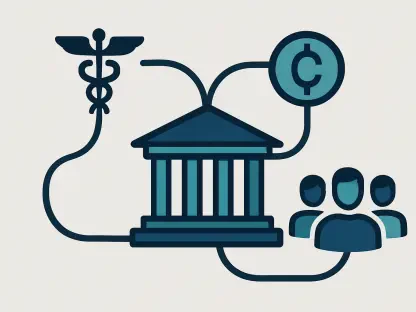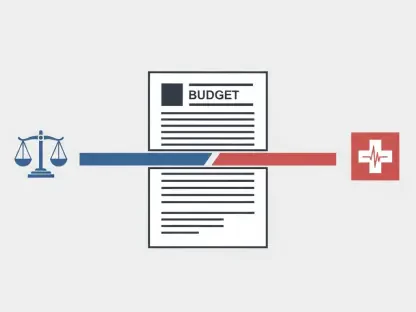In exploring the future landscape of healthcare, it is evident that outsourcing will play a vital role in transforming the industry over the coming years. The global healthcare contract research outsourcing (HCRO) market is projected to witness significant expansion, with a Compound Annual Growth Rate (CAGR) of 8.8% from now until 2033. By delegating tasks such as clinical trials, regulatory affairs, and data management to specialized third-party organizations, healthcare companies are increasingly capitalizing on cost reduction, enhanced expertise, and expedited drug development timelines. Initially valued at USD 73.11 billion, this market is expected to skyrocket to USD 165.16 billion by the forecasted period, showcasing outsourcing as an indispensable strategic advantage.
Drivers of Market Growth
The burgeoning HCRO market benefits from a variety of influential factors propelling its growth. Enhanced investment in research and development marks one of the strongest drivers, reflecting the commitment to discovering novel treatments and innovative methodologies. The complexity and scale of clinical trials have notably increased, necessitating specialized external support to manage these operations effectively. Moreover, there is an escalating demand for personalized medicine, especially in emerging economies, further pushing the need for advanced outsourcing solutions. The market’s growth can also be traced back to its capacity to offer versatile services to pharmaceuticals, biotechnology, and medical devices sectors. With clinical research services leading the charge due to their crucial role in large-scale testing and advanced medical know-how, the future viability of outsourcing in healthcare remains undeniably promising.
Challenges in Healthcare Outsourcing
Despite its advantages, the global healthcare outsourcing market faces several challenges that could impact its trajectory. One significant impediment is the lack of awareness about the benefits outsourcing brings to healthcare operations, often leading to hesitation in adopting such practices. Furthermore, the high costs associated with service provision and the underdevelopment of infrastructure in some regions present additional barriers. Regulatory conditions, which differ widely across regions, add another layer of complexity, requiring compliance with stringent guidelines and protocols. These factors necessitate strategic planning and foresight from industry stakeholders, ensuring that outsourcing practices continue to evolve to overcome these obstacles. The varied therapeutic areas such as oncology, neurology, cardiology, and immunology each present unique challenges, underscoring the need for tailored outsourcing solutions.
Competitive Landscape and Industry Innovations
As the HCRO market continues its upward trajectory, competition within the sector is intensifying, marked by a dynamic interplay of key innovators, market leaders, and niche players. The arena is characterized by market fragmentation, which sparks strategic maneuvers such as mergers, acquisitions, and partnerships aimed at consolidating resources and expanding expertise. Notable entities such as IQVIA stand out for leveraging analytics, technology, and clinical research prowess to deliver enhanced healthcare outcomes. Leveraging big data and privacy-enhanced technologies, these leading organizations offer profound insights that drive improved patient care. Industry innovations and collaborations in the realm of healthcare outsourcing are set to redefine standards and practices, catering to the demands of a rapidly shifting global market landscape.
Future Considerations and Industry Trajectory
In examining the future of healthcare, outsourcing is increasingly recognized as pivotal in reshaping the industry. The global healthcare contract research outsourcing (HCRO) market anticipates substantial growth, with an 8.8% Compound Annual Growth Rate (CAGR) projected from now through 2033. More healthcare companies are turning to outsource critical activities such as clinical trials, regulatory matters, and data management to specialized external firms. This approach is increasingly favored for its ability to cut costs, leverage specialized expertise, and shorten drug development timelines. The market, initially valued at USD 73.11 billion, is expected to surge to USD 165.16 billion by the forecasted period’s end, underscoring the strategic significance of outsourcing in healthcare. As the demand for healthcare innovations continues to escalate, outsourcing proves indispensable, furnishing organizations with the agility and efficiency required to meet evolving patient needs and regulatory standards.









